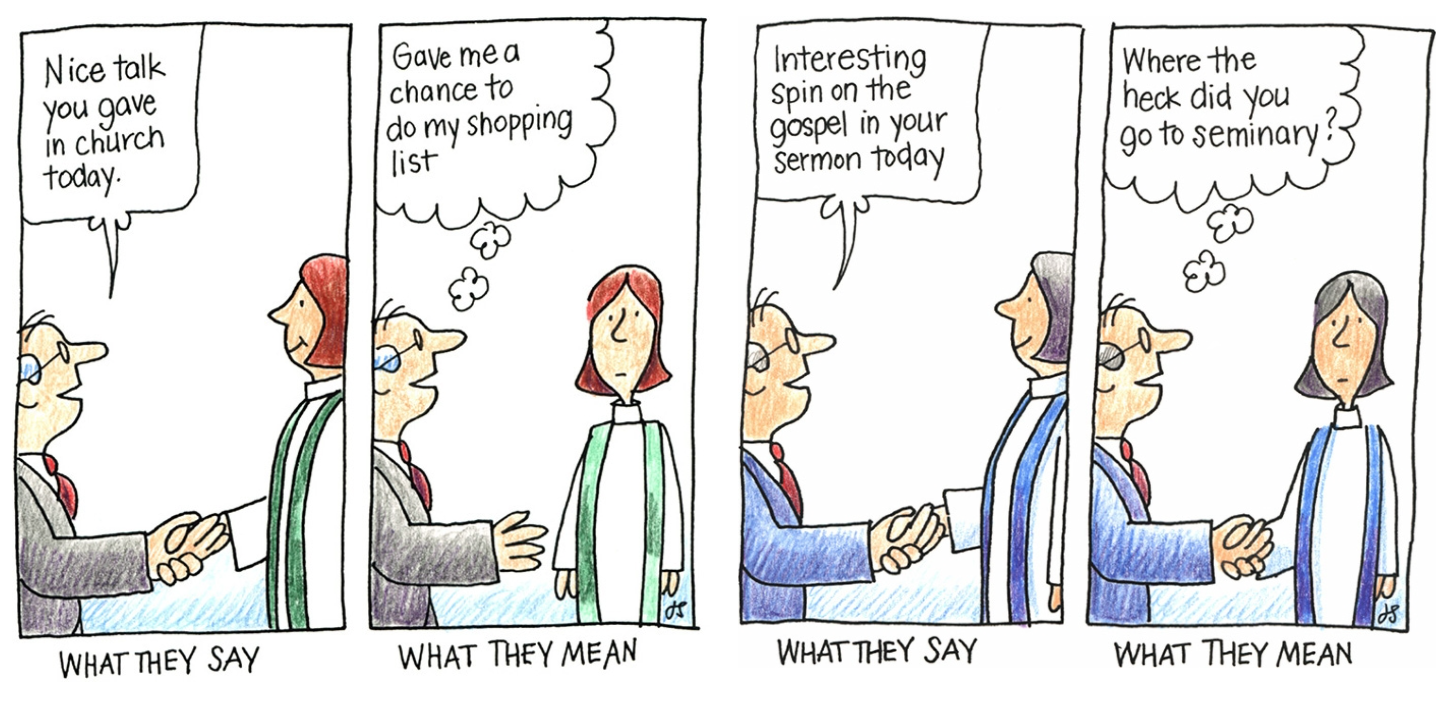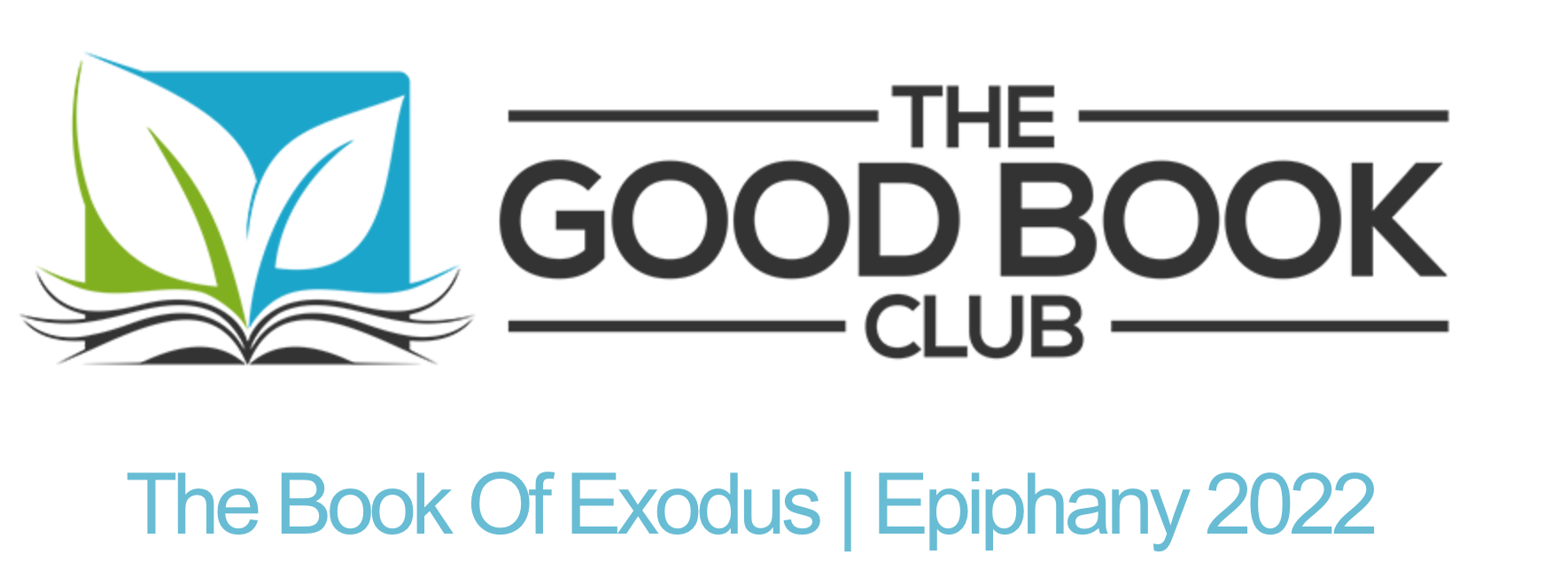
|
Jesus said: “And don’t say anything you don’t mean. This counsel is embedded deep in our traditions. You only make things worse when you lay down a smoke screen of pious talk, saying, ‘I’ll pray for you,’ and never doing it, or saying, ‘God be with you,’ and not meaning it. You don’t make your words true by embellishing them with religious lace. In making your speech sound more religious, it becomes less true. Just say ‘yes’ and ‘no.’ When you manipulate words to get your own way, you go wrong.
-Matthew 5:33-37, from THE MESSAGE, a paraphrase of the New Testament by Eugene Peterson
Above all, my beloved, do not swear, either by heaven or by earth or by any other oath, but let your “Yes” be yes and your “No” be no, so that you may not fall under condemnation.
-James 5:21
For in him (Christ) every one of God’s promises is a “Yes.” For this reason it is through him that we say the “Amen,” to the glory of God.
-II Corinthians 1:20
|
What we say
Jesus said: “Again, you have heard that it was said to those of ancient times, ‘You shall not swear falsely, but carry out the vows you have made to the Lord.’ But I say to you, Do not swear at all, either by heaven, for it is the throne of God, or by the earth, for it is his footstool, or by Jerusalem, for it is the city of the great King. And do not swear by your head, for you cannot make one hair white or black. Let your word be ‘Yes, Yes’ or ‘No, No’; anything more than this comes from the evil one.
– Matthew 5:33-37
At the church I attended as a kid, there was a member of the parish, a church lady who in my recollection was a self-appointed spiritual guide, pious in a particularly unattractive way. She and my mother were chatting one day at coffee hour, and another woman approached. This woman shared some challenges going on in her life. The church lady responded: “You know, I pray for you every day.” This woman left. The church lady turned to my mother and said: “Who was that woman?”
In my vocation as church cartoonist, I’ve done a series about what people say to the preacher at the door as they leave church. The theme: What they say. What they mean. After my preaching, I’ve had people say: “Nice chat.” I take it to mean “I didn’t pay all that much attention.” “I stuck with you the whole time” means “You’re usually either boring or hard to follow.” When they say, “You’re getting much better as a preacher” means “You don’t stink as much as you used to.” “Interesting interpretation” means “Where did you come up with that one? Where did you go to seminary?” Some years ago, on a Sunday when I preached on a difficult passage, a visiting seminarian told me “Nice try.” That was only 15 years ago. I’ve worked through it. Really, I have.
You get the idea. Church folks don’t always say what they mean, bless their hearts. Let me know how you’ve heard or said such things.
As we move through the Sermon on the Mount, exploring Jesus’ take on traditions, after reading about murder and adultery, we come to a passage about oaths and vows. A lot has been written about what he meant, whether he had specific practices in mind. I’m not sure, because there is a lot of talk throughout scripture about the importance of taking vows and oaths.
Reflection on this passage led me to think about the ways we speak. When we recite the confession, we admit falling short in thought, word, and deed. Today’s bit of teaching from Jesus asks us to focus on how that happens with our words. Our words say a fair amount about how we relate to God and how we relate to each other.
In terms of how we relate to God, Jesus warns about swearing by heaven, etc. It strikes me that he’s addressing an attempt by human folk to control God, which does not rise to the level of proper reverence for the holy presence. It’s magical thinking, with a dose of hubris, implying that we can invoke God’s activity in a controlling way.
I’m always moved by interaction with Jewish brothers and sisters who resist even writing the name G-d. Compare and contrast to the practice of Jesus as buddy, God as co-pilot. Is our speech, especially in worship, guided by the realization that every aspect of our lives unfolds before the creator who knows us more intimately than we know ourselves? Do we take the Lord’s name in vain, tagging on pious sentiments as if they were a seal of approval, or a secret password? Are we functional atheists, never acknowledging that every moment of our lives unfolds before the presence of the creator? Do words of the liturgy become routine, suggesting boredom with it all, perhaps the most egregious offense?
In terms of how we relate to each other, are we authentic in what we say? The letter to the Ephesians speaks of speaking the truth in love. Like the church lady, who in cluelessness revealed hypocrisy, we may fall into the trap of a smoke screen of pious talk, which is why I like Eugene Peterson’s rendering of Jesus’ teaching, which I’ve reprinted above.
Join me this week in thinking about how we use our words, how we speak to God (i.e., pray), how we speak of God, how we speak with each other, those close to us, those who work with us, those in church with us. Is our speech marked by humility and authenticity? Can we say what we mean, letting our yes be yes? Join me in the challenge of seeing how this particular piece of the Sermon on the Mount serves as our guide to a more Christ-like way of speaking, a more Christ-like way of being.
Good Book Club to start 2022 with Exodus
Start the new year with a renewed spiritual practice of reading God’s Word. Forward Movement, with support from partners from around the Episcopal Church and Anglican Communion, will celebrate the time of Epiphany with a new round of the Good Book Club by reading the first half of the Book of Exodus.
Exodus recounts the journey of the Israelites from slavery to freedom. We hear the great stories of Moses, from his discovery by Pharaoh’s daughter on the bank of the river to the burning bush to his presentation of the Ten Commandments. Along the way, we encounter God’s covenant and explore the grand theme of redemption.
This year, we have a bonus time of scripture engagement: the Good Book Club will dive into the first twenty chapters of Exodus from Epiphany, January 6, to Shrove Tuesday, March 1. For those who want to keep reading, we’ll offer a daily reading guide and an overview of the second half of Exodus. That reading period will conclude on Easter.
The full schedule, including the list of daily readings is available at www.goodbookclub.org.
Sign up to receive updates on Exodus.
Joining the Good Book Club is easy: Open your Bible and start reading!

